Unveiling Kazakhstan: The Epitome of Family-Oriented Values
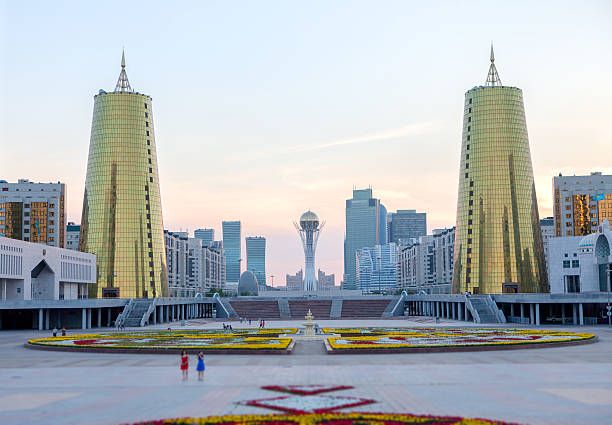
In a world where modernity often distances people from their roots and the concept of family, Kazakhstan shines as a beacon of traditional values and deep-rooted familial connections.
Nestled in the heart of Central Asia, this vibrant nation stands as a testament to the enduring strength of family ties and the profound respect its people hold for their ancestors.
Steeped in a rich history, Kazakhstan not only celebrates its present but cherishes the wisdom and heritage passed down by its great great great grandfathers.
A Cultural Tapestry Woven by Family
Kazakhstan is a nation with a diverse cultural heritage, its fabric of society is intricately woven by family bonds.
Family plays a central role in the lives of Kazakhstani people, shaping their values, traditions, and overall social fabric.
From an early age, Kazakhstani children grow in an environment that emphasizes the importance of family unity and collective responsibility.
Parents and elders teach the younger generation about their cultural heritage, customs, and traditions, passing down cherished practices that have been upheld for centuries.
This transmission of knowledge strengthens the family unit and is a bridge between the past and the present, ensuring that the rich tapestry of Kazakhstani culture remains vibrant and intact.
One of the aspects of Kazakhstan's family-oriented culture is the emphasis on respect and care for one's elders. Elders are revered and hold a position of wisdom and authority within the family.
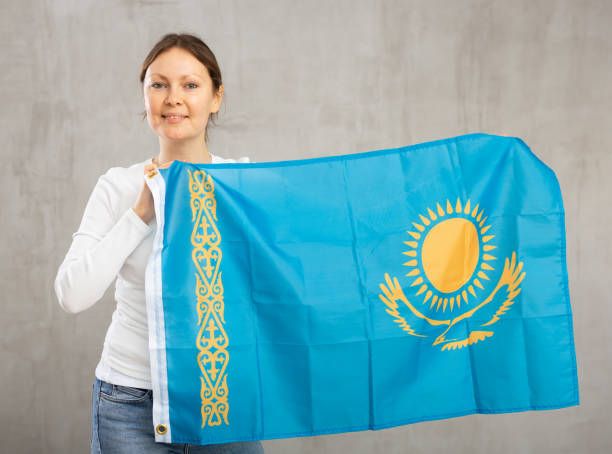
Their life experiences, knowledge, opinions, and guidance are highly valued when making important decisions.
The wisdom of the older generations is considered invaluable, and their presence within the family structure helps maintain a strong sense of continuity and tradition.
Kazakhstani families are often extended, encompassing immediate family members, grandparents, aunts, uncles, and cousins.
The extended family is a support system, providing a safety net and a sense of belonging.
Family gatherings and celebrations are cherished occasions where multiple generations strengthen bonds, share stories, and create lasting memories.
These gatherings serve as a reminder of the interconnectedness of family ties and the importance of nurturing those relationships.
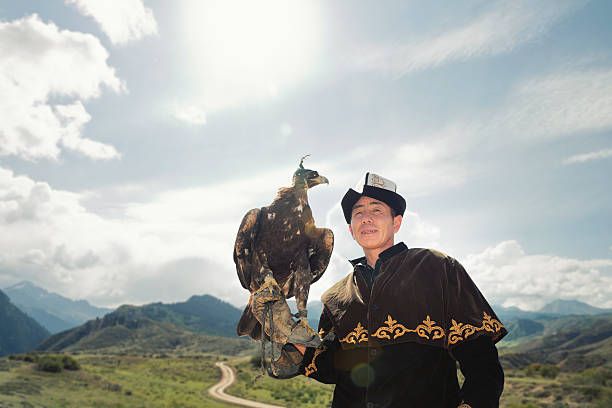
Furthermore, the concept of family extends beyond blood relations in Kazakhstan. Close friends and neighbors often become honorary family members, referred to as "zhaiyk."
This inclusion reflects the country's warm and hospitable nature, where community extends to those beyond biological ties.
In addition to the emotional support and nurturing environment provided by Kazakhstani families, there is also a practical aspect to their cohesiveness.
In times of need or crisis, family members help each other, providing financial assistance, shelter, and guidance.
This collective approach to problem-solving ensures that no family member is left behind and reinforces the idea that the family unit is better when unified.
The family-oriented nature of Kazakhstani culture has a profound impact on various aspects of society, including education, healthcare, and social welfare.
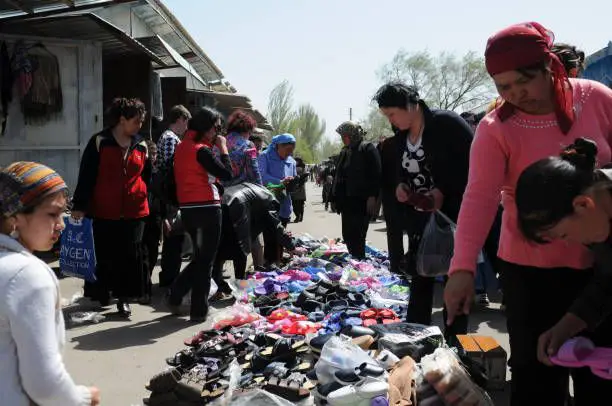
Educational institutions promote a strong partnership between parents and teachers, recognizing the role of parents in a child's upbringing and education.
Healthcare services prioritize the well-being of families, ensuring access to quality care and support systems for parents and children alike.
Social welfare programs also prioritize the welfare of families, offering assistance and resources to those in need.
Kazakhstan is a shining example of a country deeply rooted in family-oriented values. The Kazakhstani people's commitment to preserving their cultural heritage, respect for their elders, and a strong sense of collective responsibility bind the society together.
As they continue to weave their cultural tapestry, Kazakhstan exemplifies the beauty and strength of valuing and cherishing the family unit.
Celebrating the Ancestral Connection
Kazakhstan is renowned for its rich history and cultural heritage and celebrates the ancestral connection that ties its people together.
Kazakhstani society holds a deep reverence for their great great great grandfathers and the wisdom passed down through generations.
This profound appreciation for ancestry not strengthens family bonds and serves as a guiding light for individuals, shaping their identities and fostering a sense of belonging.
The Kazakhstani people desire to know their lineage and trace their family roots back several generations.
Through meticulous genealogical records and oral traditions, they uncover the stories and identities of their ancestors.
This exploration of the past is a foundation for understanding their place in the world and their connection to their cultural heritage.
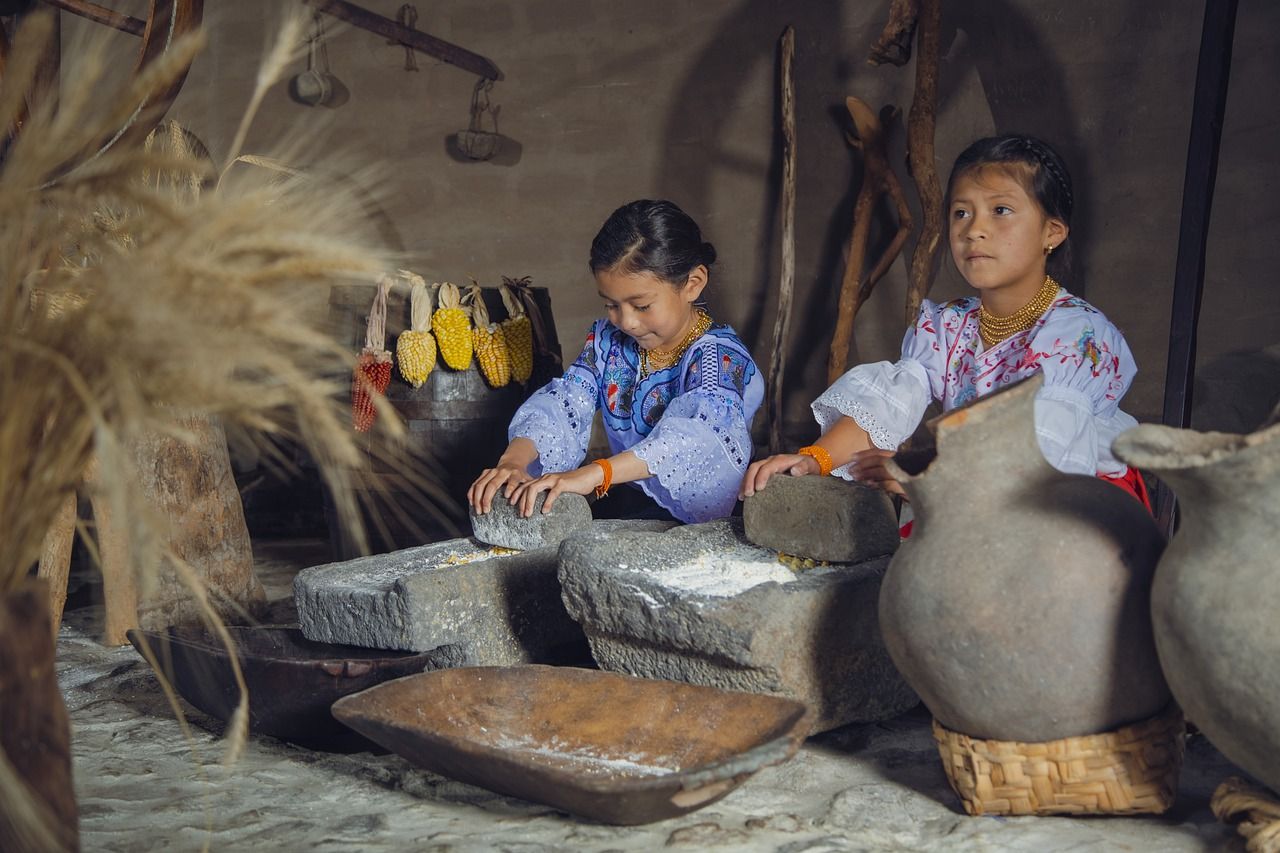
Oral tradition plays a vital role in preserving ancestral knowledge in Kazakhstan. Elders are revered as storytellers, passing tales of courage, resilience, and cultural practices to younger generations.
These stories, often infused with folklore and historical events, serve as a bridge between the past and present, ensuring that the legacy of their great great great grandfathers remains alive.
Through storytelling, Kazakhstani youth learn about their ancestors' struggles, triumphs, and the values they held dear.
These narratives provide invaluable life lessons and inspire a sense of pride in their lineage.
Kazakhstan's commitment to celebrating the ancestral connection is in various cultural practices and traditions.
Festivals and events honor and pay homage to the achievements and contributions of their forefathers.
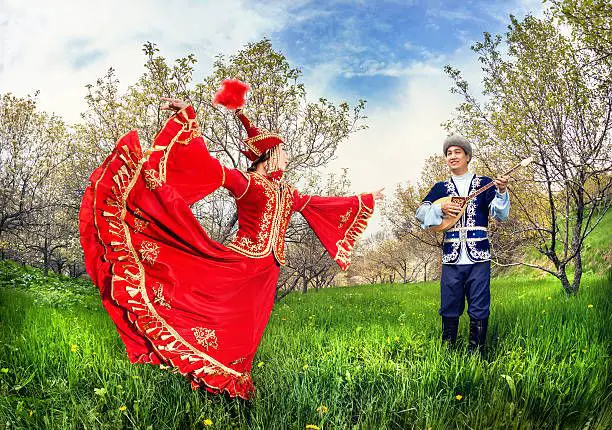
These celebrations are marked by traditional music, dance, and costumes, showcasing the vibrancy and diversity of Kazakhstani heritage.
One notable example is the celebration of Nauryz, a spring festival that symbolizes renewal and the triumph of life over the harshness of winter.
During Nauryz, families come together to partake in traditional games, feasts, and performances, fostering a sense of unity and reinforcing the importance of intergenerational bonds.
Kazakhstani families often maintain ancestral traditions and customs in their daily lives. From the preparation of traditional dishes to the observance of rituals and ceremonies, these practices connect them to their great great great grandfathers.
Through these rituals, Kazakhstani individuals gain a deeper understanding of their cultural roots and a profound appreciation for the values and beliefs that have been passed down through generations.
The celebration of the ancestral connection in Kazakhstan goes beyond mere remembrance.
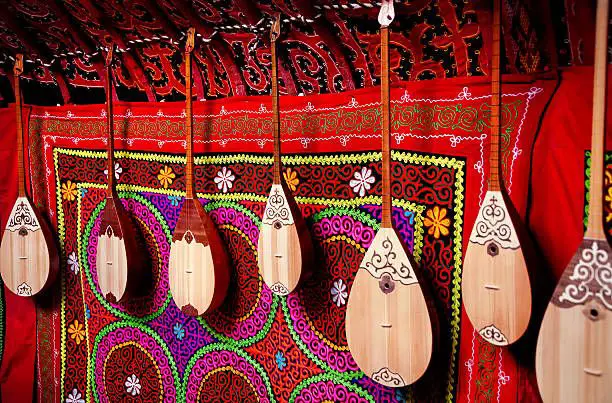
It serves as a source of inspiration and guidance for individuals as they navigate the complexities of the modern world.
The wisdom and experiences of their great great great grandfathers provide a moral compass, guiding their actions and decisions.
This reverence for their ancestors instills a sense of responsibility to carry forward the values and traditions that have shaped their identity.
Kazakhstan stands as a country that not only celebrates its present but cherishes the wisdom and heritage of its great great great grandfathers.
Through oral tradition, cultural practices, and the observance of ancestral traditions, Kazakhstani society reinforces the significance of their ancestral connection.
By embracing their roots, the people of Kazakhstan find strength, inspiration, and a profound sense of belonging, ensuring that the legacy of their great great great grandfathers continues to shape their lives and future generations to come.
The Art of Oral Tradition
In Kazakhstan, oral tradition preserves and passes down ancestral knowledge from one generation to another.
Rooted in a deep respect for history and cultural heritage, the Kazakhstani people have long recognized the power and significance of storytelling to preserve their traditions, values, and collective memory.
Oral tradition in Kazakhstan encompasses various forms of storytelling, including epic poetry, folk tales, myths, legends, and historical accounts.
These narratives serve as a vital link between the past and present, providing a window into the lives of their ancestors and offering valuable insights into the cultural fabric of the nation.
Epic poetry holds a special place in Kazakhstani oral tradition. The art of reciting epic poems, known as "zhirenshe," is a revered tradition that has been passed down through generations.
Skilled storytellers, called "akyns," captivate audiences with melodic voices, recounting tales of heroes, warriors, and legendary figures.
These epics, often centered around themes of honor, bravery, and love, not only entertain but also transmit moral lessons and historical events.

They serve as a source of inspiration, instilling pride in Kazakhstani identity and fostering a sense of cultural continuity.
Folk tales and myths are also integral to Kazakhstan's oral tradition. Passed down through generations, these stories contain moral teachings and cultural values.
Through tales of mythical creatures, magical beings, and dilemmas, Kazakhstani children and adults alike learn life lessons, traditional practices, and the consequences of their actions.
These stories also reinforce the interconnectedness of humanity and the significance of community, instilling a sense of belonging and social responsibility.
Oral tradition is not limited to storytelling alone but extends to other art forms. For centuries music and song have been used to transmit stories and celebrate cultural heritage.
Traditional Kazakh music, with its soul-stirring melodies and poetic lyrics, often carries narratives of love, nature, and historical events.

These musical compositions serve as vehicles for storytelling, invoking a sense of nostalgia and connecting listeners to their ancestral roots.
The art of oral tradition in Kazakhstan is about preserving the past and ensuring its relevance and continuity in the present and future.
Younger generations actively participate in this tradition by learning from their elders and absorbing the wisdom and knowledge shared through storytelling.
This intergenerational exchange strengthens familial bonds, cultivates a sense of identity, and allows for the preservation of cultural heritage in a rapidly changing world.
Efforts are ongoing to document and safeguard oral tradition in Kazakhstan. Archives, research institutes, and cultural organizations work to record, transcribe, and analyze these narratives, ensuring that they are accessible to future generations and scholars interested in understanding the rich tapestry of Kazakhstani culture.
The art of oral tradition is a cornerstone of Kazakhstani culture, serving as a vital means of preserving history and values.
Through epic poetry, folk tales, myths, and music, the Kazakhstani people pass down ancestral knowledge and instill a profound appreciation for their cultural heritage.
This living tradition strengthens familial bonds, connects individuals to their past, and shapes their collective identity, ensuring that the art of storytelling remains a cherished and integral part of Kazakhstani society.
Nurture and Support
Nurture and support are integral components of the family-oriented culture in Kazakhstan.
The Kazakhstani society recognizes the importance of providing a nurturing and caring environment for family members, which extends beyond immediate households and encompasses the extended family and the community.
This emphasis on collective well-being fosters a sense of unity, support, and resilience among its people.
Within the family structure, Kazakhstani parents and elders prioritize the well-being and development of their children.
Children are nurtured with love, care, and guidance, providing their physical, emotional, and educational needs.
Parents play an active role in shaping their children's values and instilling principles of respect, responsibility, and empathy.

This nurturing environment helps children develop a strong sense of self-worth, security, and a foundation for personal growth.
In Kazakhstan, the extended family helps in nurturing and supporting individuals. Extended family members, such as grandparents, aunts, uncles, and cousins, often live nearby or within the same household.
This intergenerational living arrangement allows for the sharing of responsibilities, the transmission of cultural knowledge, and the provision of emotional support.
The extended family acts as a safety net during challenging times, providing assistance, guidance, and a sense of belonging.
Furthermore, the Kazakhstani community at large embraces the concept of collective support.
Neighbors, friends, and even strangers are willing to lend a helping hand when needed.

This communal approach to support creates a strong network of relationships, and a sense of belonging that extends beyond immediate family ties.
It fosters an environment where individuals feel valued, connected, and cared for.
In times of celebration, such as weddings, births, or religious holidays, the Kazakhstani community comes together to offer support and share in the joyous moments.
These occasions give opportunities to individuals to forge and strengthen social connections, reinforcing the sense of unity and support within the larger community.
The emphasis on nurture and support in Kazakhstan extends beyond emotional and social aspects.
The country's social welfare system strives to provide assistance and resources to those in need.
Various programs and initiatives are in place to support families in healthcare, education, and financial stability.

This commitment to social welfare ensures that individuals and families can access essential services and resources, promoting overall well-being and social equality.
The nurturing and supportive environment in Kazakhstan also extends to the workplace.
Employers often recognize the importance of work-life balance and provide family-friendly policies, such as flexible working hours, parental leave, and childcare support.
The teachings of the significance of family obligations and responsibilities allow individuals to fulfill their roles at home and in the workplace, fostering healthy work-life integration.
Nurture and support are deeply in the family-oriented culture of Kazakhstan. The Kazakhstani society values the well-being and development of individuals within the family unit, the extended family, and the wider community.
Through emotional support, intergenerational living, community engagement, and social welfare initiatives, Kazakhstan is a place where individuals feel nurtured, valued, and supported.
This emphasis on collective well-being contributes to the overall happiness and resilience of the people.
Building for the Future
Building for the future is a focus in Kazakhstan, as the nation strives to create a strong foundation for sustainable development and long-term prosperity.
With a forward-thinking approach, Kazakhstan is building various sectors to foster economic growth, enhance infrastructure, promote innovation, and prioritize education to ensure a bright and prosperous future for its citizens.
One of the primary areas of focus for building the future in Kazakhstan is economic development.
The country has implemented strategic plans and initiatives to diversify its economy, reducing reliance on traditional sectors and fostering the growth of new industries.
Kazakhstan's abundant natural resources, such as oil, gas, and minerals, have catalyzed economic growth.
However, the government recognizes the importance of creating a sustainable and diversified economy to withstand global challenges.
There are ongoing efforts to promote sectors like technology, renewable energy, agriculture, and tourism, attracting investments and fostering innovation to drive long-term economic growth.

Infrastructure development is another crucial aspect of building for the future in Kazakhstan.
The government has undertaken ambitious projects to enhance transportation networks, modernize urban centers, and improve domestic and international connectivity.
Investments in roads, railways, airports, and seaports aim to facilitate trade, boost tourism, and promote regional integration.
Smart cities and digital infrastructure are priorities, leveraging technology to create sustainable and efficient urban environments.
Innovation and technological advancements are one of Kazakhstan's visions for the future.
The government is actively promoting research and development, fostering a culture of innovation, and encouraging entrepreneurship.
The establishment of innovation hubs, technology parks, and startup incubators aim to drive creativity, collaboration, and the commercialization of innovative ideas.

Kazakhstan is also investing in digital transformation, e-governance, and the development of a knowledge-based economy to keep pace with the evolving global landscape.
Education is a cornerstone of building a sustainable future. Kazakhstan is very serious about providing quality education and developing a skilled workforce.
The government has implemented reforms to improve the education system, enhance access to education, and promote vocational training.
Investments in research institutions and partnerships with international universities contribute to knowledge exchange, technological advancements, and the development of a highly skilled workforce capable of driving innovation and economic growth.
Sustainability and environmental conservation are integral to Kazakhstan's vision for the future.
The country is actively working towards mitigating the impact of climate change, promoting renewable energy sources, and adopting sustainable practices in various sectors.

Investments in clean energy infrastructure, waste management systems, and environmental conservation projects reflect the commitment to safeguarding natural resources and promoting a greener future.
Furthermore, building for the future in Kazakhstan involves fostering social development and inclusivity.
The government focuses on improving healthcare services, promoting social welfare, and enhancing the quality of life for all citizens.
There are ongoing efforts to address social inequalities, support vulnerable populations, and ensure access to essential services and opportunities for all.
Kazakhstan's forward-thinking approach and strategic investments in economic development, infrastructure, innovation, education, sustainability, and social welfare are laying the groundwork for a prosperous and sustainable future.
By focusing on building a diversified economy, enhancing infrastructure, fostering innovation, and investing in education and social development, Kazakhstan is positioning itself as a nation ready to embrace the challenges and opportunities of the future.
Conclusion
Kazakhstan is a remarkable example of a country that values its rich cultural heritage, deep family connections, and forward-thinking approach to building a prosperous future.
With a strong emphasis on family-oriented values, Kazakhstan celebrates the wisdom of its great great great grandfathers, cherishing the knowledge and traditions passed down through generations.
Through the art of oral tradition, storytelling weaves together the tapestry of Kazakhstani culture, preserving historical accounts, epic poetry, and folk tales that impart valuable life lessons and instill a sense of pride in Kazakhstani identity.
The commitment to nurturing and supporting one another strengthens familial bonds and fosters a sense of unity within the extended family and the broader community.
Looking to the future, Kazakhstan's focus on economic diversification, infrastructure development, innovation, education, sustainability, and social welfare sets the stage for long-term prosperity and sustainable society.
By investing in sectors that promote growth, embracing technological advancements, and prioritizing education, Kazakhstan is building a good foundation for economic development and creating opportunities for its citizens.
Furthermore, Kazakhstan's commitment to sustainability, environmental conservation, and social inclusivity reflects a holistic approach to building a prosperous future.
By prioritizing the well-being of its people, investing in healthcare, and addressing social inequalities, Kazakhstan strives to create a society where all individuals have access to essential services and opportunities for personal and collective growth.
In essence, Kazakhstan's family-oriented culture, reverence for ancestral connections, and visionary approach to the future position it as a country that embraces its past while building for the future.
With a steadfast commitment to cultural preservation, economic development, innovation, education, sustainability, and social welfare, Kazakhstan is forging a path toward prosperity and ensuring a bright and promising future.
